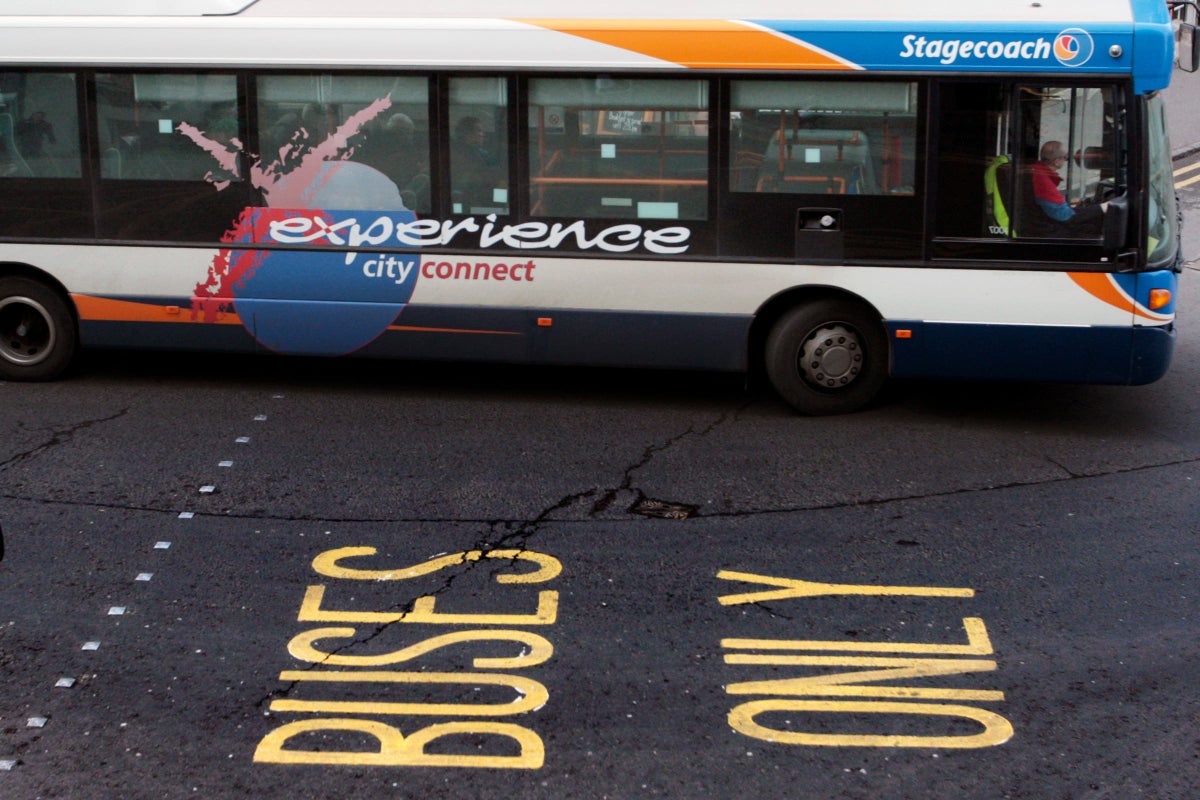Budget-Friendly Tips for Staying on Track While Hosting Local Events

Key Takeaways

- Understand Event Costs: Identify major and hidden expenses such as venue rental, catering, and permits to better manage your budget.
- Create a Realistic Budget: Research past events to set a budget that considers available funds and expected revenue, ensuring you allocate resources wisely.
- Choose Affordable Venues: Opt for community centers or local parks that offer low-cost rental options and negotiate agreements for discounts.
- Leverage Partnerships and Sponsorships: Collaborate with local businesses to share costs and resources while boosting mutual visibility and community engagement.
- Utilize Cost-Effective Marketing: Engage in social media marketing and grassroots promotion strategies to enhance event visibility without significant expenses.
- Engage Volunteers Effectively: Recruit community volunteers to reduce staffing costs and foster a sense of ownership and involvement among attendees.
Hosting a local event can be an exciting venture, but it often comes with a hefty price tag. Whether you’re planning a community gathering, a fundraiser, or a workshop, keeping costs down is essential for a successful outcome. Fortunately, there are plenty of strategies you can use to stretch your budget without sacrificing quality.
From leveraging local resources to finding creative solutions, you can host an unforgettable event that stays within your financial limits. Discovering ways to cut costs not only makes your event more sustainable but also allows you to focus on what truly matters—bringing people together and creating memorable experiences. Let’s explore some effective tips to help you save money while still delivering a fantastic event.
Understanding Event Costs

Understanding the various costs associated with hosting a local event plays a crucial role in effective budget management. Recognizing major expenses and accounting for hidden costs ensures you avoid overspending while maintaining quality.
Identifying Major Expenses
Identifying major expenses helps you allocate your budget effectively. Key costs typically include:
- Venue Rental: Fees for space, utilities, and necessary facilities.
- Catering Services: Food and beverages for attendees, including staff if needed.
- Equipment Rentals: Costs for audio-visual equipment, tables, chairs, and decorations.
- Permits and Insurance: Required licenses for hosting public events and liability insurance coverage.
- Marketing and Promotion: Expenses for local advertising, printing flyers, brochures, and online promotions.
Deliberate planning enables you to prioritize these expenses based on your target market and community engagement goals.
Hidden Costs to Consider
Hidden costs can significantly impact your overall budget. You should account for:
- Last-Minute Fees: Additional costs for late bookings, extra services, or changes in requirements.
- Service Charges or Taxes: Often applied to catering, venue rental, and equipment.
- Transportation Costs: Delivering materials and supplies could add unexpected expenses.
- Staffing Needs: Costs for security, event staff, or volunteers may not be immediately apparent.
- Cleaning Services: Post-event cleaning fees for maintaining venue cleanliness.
By anticipating these costs, you can keep your local event’s expenses in check while focusing on a strong marketing strategy, like leveraging social media marketing and local PR to boost awareness and attendance.
Budgeting for Your Event

Budgeting effectively is crucial for optimizing your expenses while hosting a local event. A well-structured budget ensures you allocate funds wisely and enhances your community engagement without overspending.
Creating a Realistic Budget
Determine your overall budget by considering your available funds, expected revenue, and variable expenses. Research past events to grasp typical costs in your area, helping you identify areas to reduce spending. Allocate some funds specifically for local marketing efforts, enhancing your online presence through platforms like Google My Business, local listings, and social media marketing. Set clear event goals and choose venues that align with both your budget and community engagement objectives.
Allocating Funds Wisely
Select cost-effective venues such as community centers or local parks that offer free or low-cost rental options. Involve local partnerships to share expenses; sponsors can provide vital resources or funding in exchange for brand exposure. Utilize local advertising methods, including flyers, brochures, and direct mail, to promote your event cost-effectively. Incorporating grassroots marketing strategies, such as word of mouth, can amplify your reach. Focus on your target market by engaging them through email marketing and social media platforms, like Facebook and Instagram. These strategies ensure you retain customer loyalty and build brand awareness while keeping costs manageable.
Venue Selection Strategies

Selecting the right venue is crucial for keeping costs down while hosting local events. By focusing on affordable locations and community spaces, you can maximize your budget and enhance community engagement.
Choosing Affordable Locations
Opt for locations that offer budget-friendly rental rates. Community centers, local parks, and small businesses often provide flexible pricing. Look for venues that allow you to customize your rental agreement, enabling you to negotiate discounts based on your event requirements. Always inquire about off-peak rates, especially during weekdays or less busy times, as this can significantly lower your venue costs.
Utilizing Community Spaces
Utilizing community spaces fosters local partnerships and strengthens your connection with the neighborhood. Reach out to public libraries, schools, and other community organizations that may offer their venues at reduced rates for local events. These spaces often support community involvement and engagement, aligning with your brand’s values. They also provide an opportunity for grassroots marketing through word of mouth, as attendees may share their experiences, thus enhancing your local presence. Consider promoting your event through local listings on platforms like Google My Business and Yelp to attract more attendees.
Leveraging Partnerships and Sponsorships

Effective partnerships and sponsorships can significantly reduce costs while enhancing your event’s reach. Collaborating with local businesses creates opportunities for mutual benefit and strengthens community engagement.
Collaborating with Local Businesses
Work with local businesses for cross-promotions and in-kind contributions. By partnering with nearby restaurants or service providers, you can exchange visibility for services, such as catering or venue space. This collaboration leads to shared resources, reduces individual costs, and increases exposure for all parties involved. Promote each other’s businesses through local advertising campaigns, social media marketing, or community bulletins to maximize impact. Utilizing local listings and Google My Business can further enhance your online presence, improving visibility in local search results.
Seeking Sponsorships to Offset Costs
Explore sponsorships to cover various event expenses. Approach businesses interested in reaching your target market and offer them promotional opportunities in return. Integrate their branding into your event, display their products, or feature them in marketing materials, such as flyers and brochures. Local sponsorships not only offset costs but also strengthen connections within your neighborhood. Craft a compelling sponsorship proposal that highlights potential benefits, including brand awareness through local PR and influencer marketing. Utilizing email marketing and social media platforms can aid in showcasing these opportunities effectively.
Cost-Effective Marketing Strategies

Maximize your event’s reach and minimize expenses through targeted marketing strategies tailored for small businesses. Utilize these cost-effective methods to enhance your visibility while fostering community engagement.
Utilizing Social Media
Leverage social media platforms like Facebook and Instagram to promote your event. Create engaging content, highlight local partnerships, and utilize local hashtags to connect with your target market. Use tools like Facebook Ads for targeted advertising, or Instagram for business features to reach potential attendees effectively. Post regularly, share updates, and encourage your followers to spread the word, creating a buzz around your local event. Incorporate user-generated content and online reviews to bolster your online presence and authenticity.
Word-of-Mouth Promotion
Encourage word-of-mouth promotion by offering incentives for attendees who bring friends or share your event on social media. Foster customer loyalty through local coupons and loyalty programs. Consider forming cross-promotions with local businesses to reach wider audiences and enhance brand awareness. Engage your loyal customers by asking them to share their experiences on platforms like Yelp, Google My Business, or through personal interactions with their networks. This grassroots marketing approach creates organic excitement and significantly boosts attendance without any significant financial outlay.
Volunteer and Staffing Solutions

Volunteer and staffing strategies play a crucial role in managing costs for local events. You can leverage community involvement to enhance your event while keeping expenses low.
Engaging Volunteers
Engaging community volunteers can significantly reduce your staffing needs. Recruit local members, students, or corporate volunteers to assist with setups, registrations, and cleanups. Tap into corporate volunteering programs to align with their CSR initiatives, which fosters community engagement. When you involve volunteers from local businesses in your events, you build stronger connections and increase local marketing opportunities.
Streamlining Staffing Needs
Streamlining your staffing requirements is essential for cost-effective event management. Define specific roles and create clear shifts to minimize the number of paid staff members necessary. Utilize virtual volunteering for tasks that don’t require physical presence, such as translation services or hosting online workshops. This approach not only cuts down costs but also attracts remote or hybrid attendees. For additional support, consider local sponsorships which can provide resources while promoting your brand within the community. Integrating volunteers into your staffing strategy enhances the overall experience while supporting local business networking efforts.
Conclusion

Keeping costs down while hosting a local event is entirely achievable with the right strategies. By leveraging local resources and forming partnerships, you can create a memorable experience without breaking the bank.
Focus on budget-friendly venues and utilize grassroots marketing techniques to reach your audience effectively. Engaging volunteers can also significantly reduce staffing expenses while enhancing community involvement.
With careful planning and creativity, you can manage your budget and still deliver an impactful event that resonates with your community. Embrace these strategies to ensure your next local gathering is both successful and cost-effective.
Frequently Asked Questions

What are the main challenges of hosting a local event?
Hosting a local event involves various challenges, particularly financial ones. Key issues include managing costs, identifying hidden expenses, and ensuring a high-quality experience for attendees while staying within budget. Event planners need to navigate expenses related to venue rental, catering, permits, and marketing effectively.
How can I keep event costs down?
To keep costs down, consider leveraging local resources, negotiating with vendors, and utilizing affordable venues like community centers or parks. Additionally, focusing on grassroots marketing methods, such as social media and word of mouth, can help promote the event without overspending.
What types of hidden costs should I be aware of?
Hidden costs can include last-minute fees, service charges, transportation expenses, staffing needs, and cleaning services. Anticipating these expenses early on will help you create a more accurate budget and avoid unexpected financial surprises.
What budgeting strategies should I use for a successful event?
Start by assessing your available funds and expected revenue. Research past events to gauge typical costs, and create a realistic budget that allocates funds for essential expenses, marketing, and local partnerships. Effective budgeting optimizes your spending while achieving community engagement goals.
How can I enhance community engagement through events?
Enhancing community engagement can be achieved by selecting affordable venues, fostering local partnerships, and actively promoting collaboration with local businesses. Engaging the community through volunteer opportunities also strengthens connections and encourages attendance at your event.
What role do sponsorships play in event planning?
Sponsorships can significantly reduce event costs by providing financial support or in-kind contributions. By collaborating with local businesses interested in reaching your target audience, you can offer promotional opportunities in return, enhancing both your event’s reach and community ties.
How can social media help promote my event?
Social media platforms like Facebook and Instagram are powerful tools for promoting your event. Create engaging content, utilize local hashtags, and encourage attendees to share the event with their networks. This grassroots marketing approach fosters excitement and encourages higher attendance without heavy financial investment.
How can volunteers assist with reducing event costs?
Engaging volunteers can drastically reduce staffing costs. Seek community members, students, or corporate volunteers to help with setups, registrations, and cleanups. By defining specific roles and utilizing virtual volunteering, you can streamline operations effectively while enhancing community involvement.
Image Via Envato
This article, "Budget-Friendly Tips for Staying on Track While Hosting Local Events" was first published on Small Business Trends
What's Your Reaction?
 Like
0
Like
0
 Dislike
0
Dislike
0
 Love
0
Love
0
 Funny
0
Funny
0
 Angry
0
Angry
0
 Sad
0
Sad
0
 Wow
0
Wow
0

















































![Sam Robbins chats new album, life on the road, lucky charms and more! [Interview]](https://earmilk.com/wp-content/uploads/2025/04/Sam-Robbins.jpg)

![Abstract Mindstate share hard-hitting release "Bar Louie", featuring David Banner [Video]](https://earmilk.com/wp-content/uploads/2025/04/abstract-mindstate.jpeg)











































